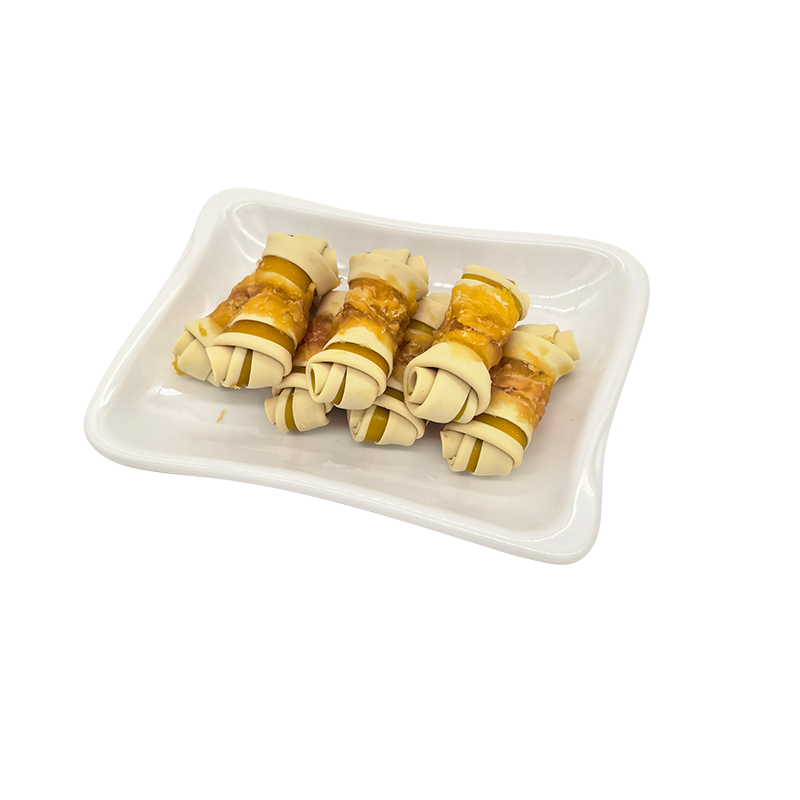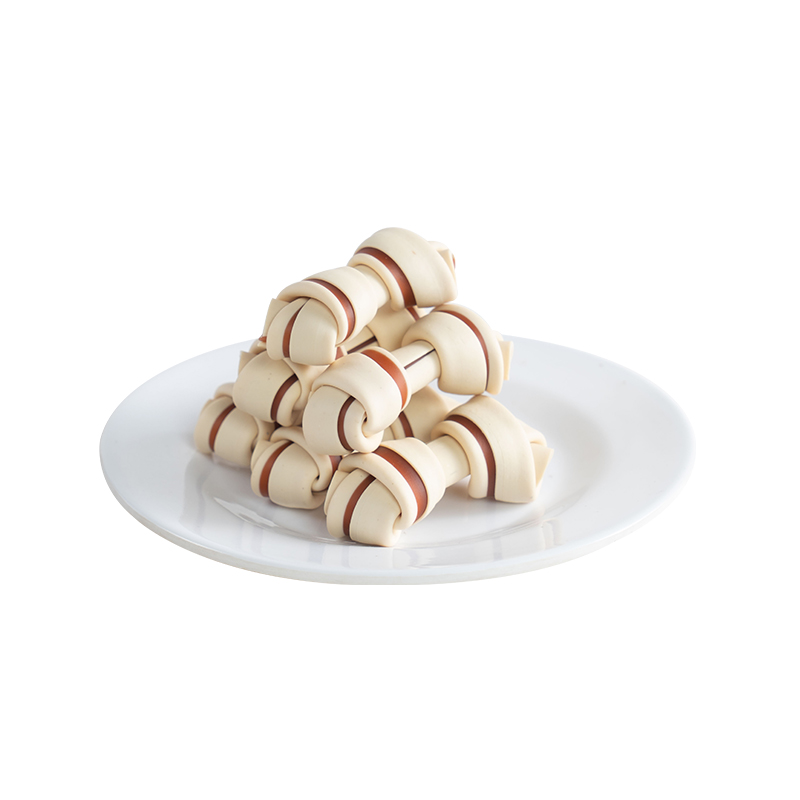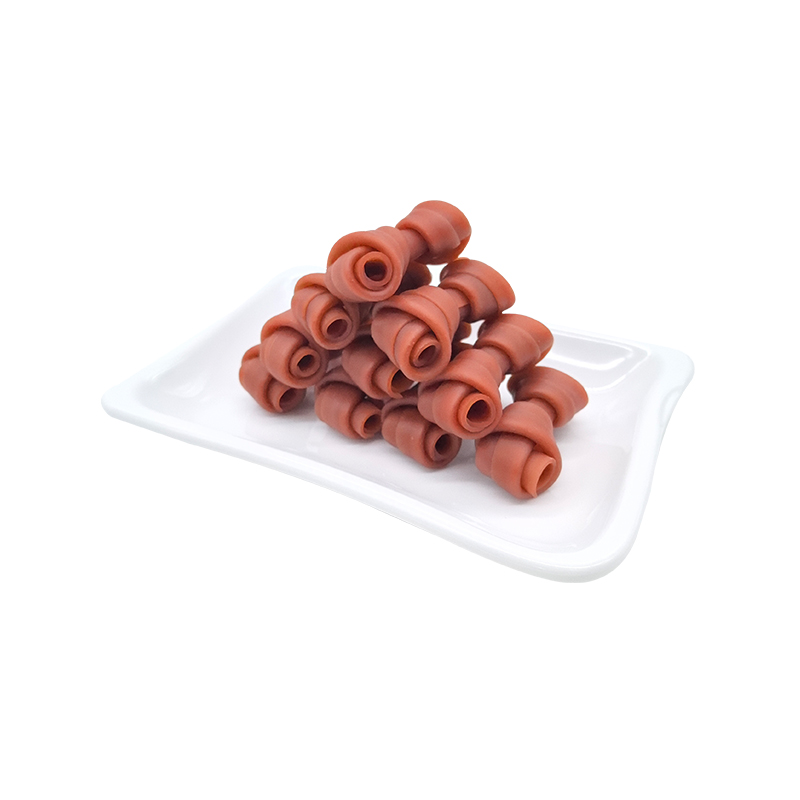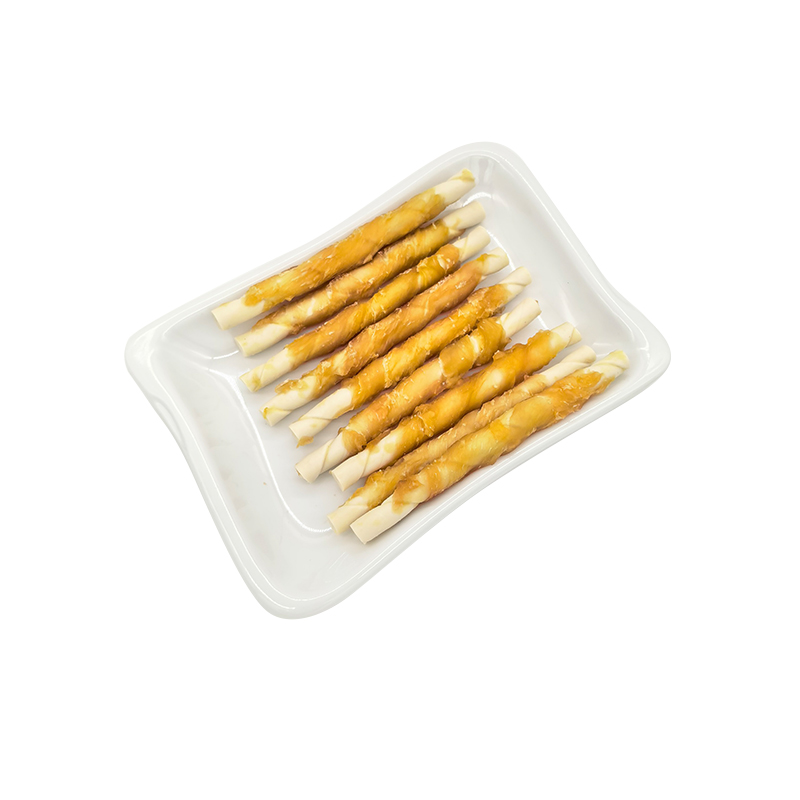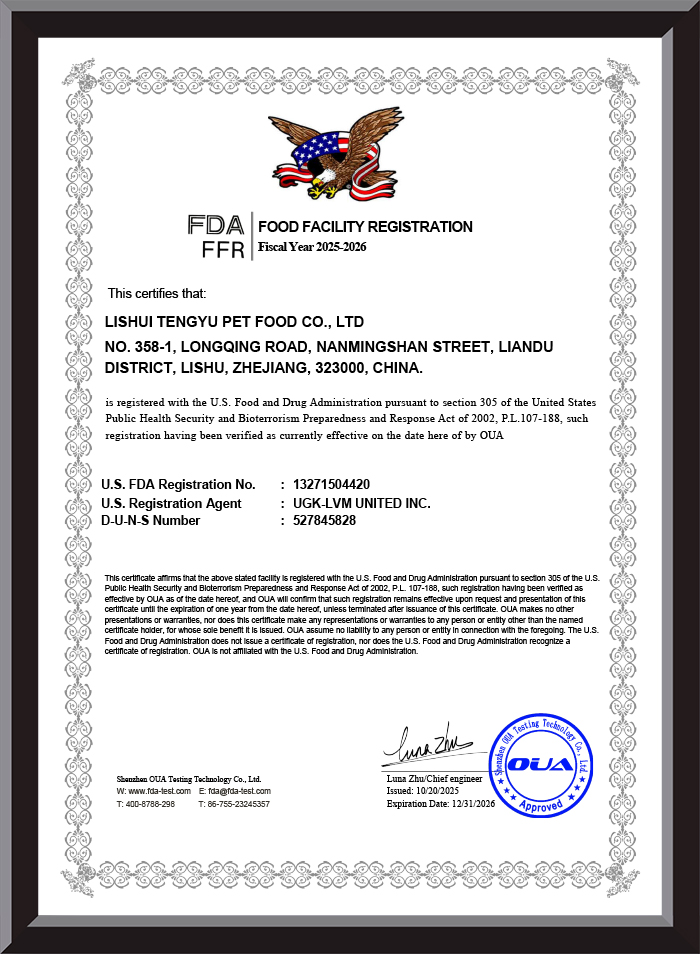Introducing puppy jerky treats into a young dog's routine is about more than just handing out a snack; it involves thoughtful integration into their o...
Read MoreWelcome to Lishui Tengyu Tierfutter GmbH.
[email protected]

-
-
Puppy Jerky Treats have become increasingly popular not only for their taste but also for their ingredient transparency. Ingredient transparency is a ...
Read More -
Puppy Jerky Treats have become a common snack choice among dog owners, offering both flavor and convenience. While these treats are appealing to puppi...
Read More -
Puppy Jerky Treats are a popular choice among dog owners who want to reward their pets while ensuring a balanced diet. These treats offer a combinatio...
Read More
Dry jerky treats have become a popular choice for dog owners looking for convenient, nutritious, and long-lasting snacks. Known for their chewy texture and high protein content, Dry Jerky Treats offer multiple benefits for dogs, including dental support, natural nutrition, and sustained engagement.
What Are Dry Jerky Treats?
Dry jerky treats are dehydrated or baked strips of meat or plant-based protein, designed to provide a long-lasting chewing experience. Unlike soft treats, jerky has a firm texture that encourages chewing, which can help maintain oral health and reduce boredom.
Key Features:
- High in protein: Supports muscle maintenance and energy levels
- Long-lasting chew: Keeps dogs engaged for extended periods
- Low moisture content: Reduces spoilage and extends shelf life
- Variety of flavors: Available in chicken, beef, turkey, and plant-based options
Dry jerky treats are suitable for dogs of all sizes and can be used as a snack, reward, or dental aid.
Benefits of Dry Jerky Treats
Dry jerky treats provide more than just flavor. The benefits include:
- Dental Support: The firm texture helps scrape plaque and tartar from teeth
- Nutritional Value: High-protein content supports lean muscle and overall health
- Boredom Relief: Chewing jerky reduces stress and prevents destructive behaviors
- Portability: Easy to carry and store for travel or training sessions
- Digestive Support: Some jerky treats include added fiber for gut health
Regularly providing jerky treats in moderation can complement a dog’s diet and promote well-being.
Types of Dry Jerky Treats
Dry jerky treats come in various types depending on ingredients, processing methods, and dietary preferences:
| Type | Main Ingredients | Good For | Features |
| Chicken Jerky | Chicken breast or meat | General snacking | High protein, firm chew, widely available |
| Beef Jerky | Beef strips or lean meat | Active dogs | Rich in iron and amino acids |
| Turkey Jerky | Turkey meat | Sensitive dogs | Low-fat, easy to digest |
| Fish Jerky | Salmon, cod, or other fish | Omega-3 support | Provides healthy fatty acids for coat and skin |
| Plant-Based Jerky | Soy, lentils, or pea protein | Dogs with protein sensitivities | Nutritionally balanced alternative |
Choosing the right type depends on your dog’s dietary needs, size, and chewing style.
How Dry Jerky Treats Support Dental Health
The texture of dry jerky treats can contribute to oral hygiene:
- Mechanical cleaning: Chewing helps remove plaque and tartar naturally
- Gum stimulation: Encourages healthy blood flow to gums
- Breath improvement: Natural ingredients in some jerky support fresher breath
While jerky treats should not replace brushing, they can complement regular dental care routines.
Nutritional Information and Guidelines
Many dry jerky treats are high in protein and low in fat, but nutrient content can vary:
| Nutrient | Typical Range | Benefit |
| Protein | 20–40% | Maintains lean muscles and supports energy |
| Fat | 2–12% | Provides sustainable energy |
| Fiber | 1–5% | Supports digestion |
| Moisture | 6–12% | Reduces spoilage and maintains chew texture |
Recommended Daily Intake:
- Small dogs (<10 lbs): 1–2 small jerky pieces
- Medium dogs (10–25 lbs): 2–4 pieces
- Large dogs (25–50 lbs): 3–6 pieces
- Extra-large dogs (>50 lbs): 4–8 pieces
Always monitor portion sizes to maintain balanced caloric intake.
Key Ingredients to Look For
When selecting dry jerky treats, focus on quality ingredients:
Protein Sources:
- Chicken, beef, turkey, or fish
- Lean cuts preferred for low fat content
Natural Additives:
- Sweet potato, pumpkin, or carrots for fiber
- Parsley or mint for natural breath support
Avoid:
- Artificial colors, flavors, or preservatives
- Excessively high sodium content
Choosing treats with simple, recognizable ingredients reduces the risk of sensitivities and supports overall health.
Safety Tips for Dry Jerky Treats
Although generally safe, dry jerky treats require careful selection and monitoring:
- Size matters: Match the treat size to your dog’s mouth to prevent choking
- Check packaging: Ensure products are fresh and properly stored
- Introduce gradually: Start with small pieces to monitor digestion
- Supervise chewing: Especially for aggressive chewers
Proper handling ensures your dog enjoys the treats safely.
How to Incorporate Dry Jerky Treats into Daily Routine
Dry jerky treats can be used strategically for:
- Training: Reward positive behavior without high calories
- Dental support: Provide chews after meals to help clean teeth
- Mental stimulation: Keep dogs engaged during play or alone time
- Travel: Convenient, long-lasting snacks for trips and outings
By using jerky treats thoughtfully, owners can big their benefits.
Comparison Table: Dry Jerky vs. Other Treats
| Treat Type | Texture | Nutritional Focus | Ideal Use |
| Dry Jerky Treats | Firm, chewy | High protein, low fat | Dental support, training, snacking |
| Soft Biscuits | Soft, easy to chew | Balanced macros | Training, rewarding, small dogs |
| Rawhide Chews | Medium to hard | Primarily chewing satisfaction | Stress relief, moderate dental support |
| Freeze-Dried Treats | Crisp but delicate | Preserved nutrients | Sensitive dogs, occasional snack |
Common Questions About Dry Jerky Treats
Q1: Are dry jerky treats safe for puppies?
Yes, choose small, tender options suitable for developing teeth, and supervise chewing.
Q2: Can all dogs eat meat-based jerky?
more dogs can, but those with allergies or sensitivities should have hypoallergenic or plant-based options.
Q3: How often should dry jerky treats be given?
Moderation is key. Daily small portions or a few times per week is usually sufficient.



 English
English Español
Español Deutsch
Deutsch



